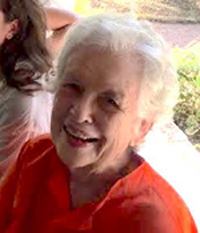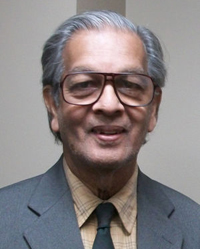Appreciations
View(s):An inspirational free spirit, she touched my life in many ways
 Jeanne Thwaites
Jeanne Thwaites
I was short-listed for the Gratiaen Prize in 1998 but Jeanne Thwaites won it. Jeanne had recently returned to Sri Lanka from the U.S. where she had earned her living mainly as a photographer for 40 years. I learnt later that she had had two pictures in Life magazine and had won several international competitions. A beautiful tall Burgher lady in her late sixties, she collected her award and walked up to me saying, ‘I feel as if I’ve stolen this from you.’ This was a flattering comment because she was by far the best writer of us. Her short stories titled, ‘It’s a sunny day on the moon,’ were moving, humorous, witty and beautiful, without a comma out of place.
Even then I preferred her company to anyone else’s. We had the same interests – animals, trees, writing and what was to become apparent later, God. I was lucky. She married my dear cousin Feizal and I began to visit them often in her estate in Kotadeniyawa.
I realized that Jeanne was a free spirit when I proudly invited her to our Wadiya writers workshop at Beach Wadiya, knowing we’d benefit from her comments. Instead she sat at one end of the table and began chatting with her immediate neighbours.
‘Jeanne, what are you doing?’ I scolded, ‘you are supposed to listen to the story that’s being read out!’
‘But darling, I can’t hear a word,’ she called back, ‘the sea is too loud.’ She continued with her conversation regardless of my black looks in her direction.
She was a fantastic editor of my work, particularly of my half-baked poems.
‘Cut this word out,’ she’d say about a word I was particularly proud of. ‘It’s superfluous…..This emotion is unnecessary, you’ve already demonstrated it,’ and so on. Patiently and lovingly she went through all my drafts.
In return I visited and ate the local rice and sumptuous vegetable curries that Feizal and she had their staff prepare.
Jeanne changed topics effortlessly while speaking. It was difficult to keep up with her. When Feizal joined in the conversation, he spoke about topics equally complex and it became impossible to listen to them both at once. I began taking my friends and they too had the pleasure of their hospitality.
After lunch we’d walk round the estate, paying attention to some plants introduced recently or to a treasured newborn tortoise or buffalo. It was my favourite time. Her dogs accompanied us and I enjoyed observing animals, birds and plants living freely. No animal was killed or made use of – they were treated with respect and love.
When I moved to London with my sons, Jeanne and I began to email each other frequently. She wrote about her love for nature.
My Daniel grandfather who was an auctioneer was also someone who loved plants. But I didn’t realise how passionately I love all nature till I had my own place. I was known from childhood as a child who preferred the company of dogs to people. Dogs were often tied up in those days so I would go and sit with them when we visited my parents’ relatives and close friends.
Jeanne had her own particular and thoughtful view on each topic. Whenever I got a long email from Jeanne, I’d treasure it and keep it until I had enough time to digest it and reply. She replied after I sent her a Ramana Maharshi link.
Fa love,
Last night I found that Ramana Maharshi has turned me around and I am now aware that there is no ‘I’ in the way I often used it to defend a position which did not need defending as I was talking to another human being. Paul has already made that jump. I noticed some time ago he defended nothing he did and there was no need to as I had already ‘got it’. That letting go is not easy…
Paul was Jeanne’s friend and mine, a faith healer in London who successfully reduced her pain.
Our emails became part of larger emails. We’d pause and start again. Once I apologized for not writing and Jeanne wrote immediately that I was not to write under pressure, our friendship should allow freedom. But I found it essential to write to Jeanne, she had become a dear friend.We trusted each other and were thus able to confide in each other.
Recently I became terribly depressed,I had been writing about our mutual friend, Patricia who had died. I complained to Jeanne that I couldn’t write anymore. I decided to write my will and go for Haj as a last resort.
Unexpectedly Jeanne sent me an email two weeks before I left for Haj.
Dear Fa,
Woke this morning and began to think of your block in writing about Patricia then suddenly there she was with me. She stayed awhile. I said I thought your block was because you were not writing freely, too many ideas. She asked me to tell you that you’re going to Mecca for Haj is going to help many people if you do not forget there will be much unhappiness among the other pilgrims and they must just let that go. So make everyone whose eyes meet yours know you care. I think that is great advice for all of us always….
I thought I was the unhappiest of souls so Jeanne’s message didn’t make sense. I refused to take her message seriously, bitter in my anguish. But Jeanne wrote again that Patricia had reappeared to say her message was true. I then resolved to follow the advice of these two Christians, telling me how my Haj should be performed!
Throughout my Haj I focused on the happiness of others and earned my own happiness. It was August and the temperature 44°C but I was hugging strangers and beaming.
Dearest Fa,
Just mailed you Vedanta. Isn’t it beautiful? It frees us to be happy all the time. We are so different to each other but it comes down to the same thing. We are part of the Creation and want that to remain pure love.
Jeanne was not a church-going Christian but recognized goodness in people. She said, ‘What I am finding….it’s so extraordinary, I saw that in my aunt Dodo. My aunt Dodo was a spindly little woman and one day she was putting on a dress and I said, ‘Where are you going, Dodo? And she said, ‘my best friend has forgotten to invite me to her wedding but I knew she would want me to… and I thought, ‘isn’t that lovely! Isn’t that lovely! But she was this holy person,…and I kept saying to myself, ‘why are they so satisfied with so little, my mother’s family?
Realising this, perhaps Jeanne deliberately chose a simple life in the estate over the city. She explained her philosophy to me at length, referring to Byron Katie, Yogananda and other teachers from different faiths.
She wrote, I have found that all spiritual paths are the same, that is there are devotees of each that are on the same plane. Unfortunately, others join religions for different reasons.
Of her love for God, Jeanne said, ‘To be with God is constant happiness, only God.’ She had talked to God from a young age. A few months before she died, Jeanne said, ‘I asked God if I could be close to Him and I got the instant reply that I already am.’ She was so thrilled that I laughed with her, thrilled myself to be with a spiritual person who was so humble about it. ‘God is where people laugh and have joy in their activities. There must be laughter,’ she insisted.
When Feizal told me that Jeanne was unwell, it suddenly struck me that she was 89. She’d never seemed a day older than me. When Feizal wrote that Jeanne had left us, that didn’t seem possible either. Jeanne continues to talk to us with the same energy and love – in our treasured memory of her, in her emails, her books, photographs and in her estate, which is in a state of bliss – all the birds are singing, every leaf is shining.
Fahima Sahabdeen
A visionary and true giant of our time
 Roland Silva
Roland Silva
Dr. Roland Silva, described as a “true son of mother Lanka” and a “giant of our time” was an architect and archaeologist who served as the Commissioner of Archaeology and founder Director General of the Central Cultural Fund. He was instrumental in the declaration of Anuradhapura, Polonnaruwa, Sigiriya, Dambulla, Kandy and Galle as UNESCO World Heritage Sites. During his career as an archaeologist, Dr. Roland Silva worked on every known stupa in Sri Lanka. He was conferred the title of “Puravidya Vidvjjana Shirmmani” in appreciation of his services to the Sanga-sasana by Karakasangasabhava of the Malwatte chapter headed by the Chief Prelate of the Chapter.
His contribution to establishing world class teaching, education and institutions in Sri Lanka has led to generations of Sri Lankans leading the fields of architecture and conservation. Early in his career he worked under Dr. Justin Samarasekera in establishing an architecture course at the University of Moratuwa and during his tenure as President of the Sri Lanka Institute of Architects, Royal Institute of British Architects (RIBA) accreditation was obtained for those who passed the equivalent parts of the exam at the University of Moratuwa.He later served as the Chancellor of the University of Moratuwa.
Dr. Roland Silva’s contribution in the field of conservation spread internationally when he became the first non-European World President of the International Council on Monuments and Sites (ICOMOS), a position he held for nine consecutive years (1990-1999). During his tenure as President of ICOMOS, the membership of the organization increased from 67 to 112 countries and he presided over the nomination of 222 out of the 500 World Heritage sites established by 1999. He has also served as an advisor on conservation to China, Italy, Cambodia, Bangladesh, Thailand, Pakistan and the Maldives.
Dr. Silva possessed a Doctor of Letters (D.Litt) from the University of Leiden, and D.Sc (Hon Causa) from the University of Moratuwa. He served as the UNESCO Chair of the Post Graduate Institute of Archaeology, University of Kelaniya, Member of the Councils of the Universities of Jayawardenapura, Moratuwa, Kelaniya, University of Ceylon -Vidyodaya, Moratuwa and Jaffna campuses. His numerous publications have shed light on pioneering techniques and interpretations on archaeology, which still act as a guide to scholars both locally and internationally. He has led the way in national and international policy on monuments and conservation, and its implementation worldwide, leading the change from the front.
In recognition of his colossal contribution to the nation in the fields of conservation, archaeology and architecture, he was conferred VidyaJyothi (Light of Science) in 1992 and Deshamanya in 2006 by the Government of Sri Lanka. He was also the recipient of the prestigious Fukuoka Art and Culture Prize for Asia from Japan and the Gazzola Prize from ICOMOS International in tribute to his international and local achievements. Dr. Silva was the founder President of the National Trust of Sri Lanka
After retiring from government service and ICOMOS, Dr. Silva served as a non executive chairman of the Silvermill Group of Companies for over a decade. Under his chairmanship the Silvermill Group expanded operations into several buildings designed by him. His last project was the concept and design of a coconut museum.
He is widely acclaimed as a visionary, an exceptional professional, a great teacher, a brilliant scholar and a true giant of our time. His life is best remembered by one of his favourite poems, “If” by Rudyard Kipling “…If you fill the unforgiving minute, With sixty seconds worth of distance run, Yours is the Earth and everything that is in it….”
Dileep Mudadeniya


